Four Grant Assistance for Japanese NGO Projects (Ethiopia, Mali, Nigeria, Uganda) have been approved by the Japanese government
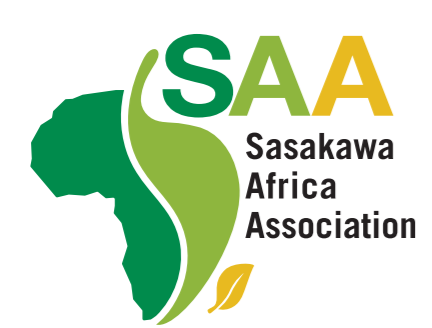
SAA’s Japanese NGO grant aid projects in Uganda, Ethiopia, Nigeria, and Mali have been approved by the Japanese government.
In Ethiopia, as in the previous fiscal year, we will continue to demonstrate and disseminate cultivation technologies that enable both environmental friendliness (reduction of greenhouse gas emissions) and profitability for smallholder farmers. In Uganda and Mali, the project aims to strengthen the functions of agricultural cooperatives and improve the livelihood of smallholder farmers by introducing cash crops such as vegetables. In Nigeria, the project aims to strengthen the functions of agricultural cooperatives using ICT technology and to decarbonize the rice production process (replacing firewood and coal wood).
A summary of each project, which starts this year, is as follows.
Ethiopia
Project title:Pro-Environment Market-oriented Agriculture Promotion Project in Ethiopia II (PREMAP II) (Climate Solutions Technologies Initiative)
Fund amount:98,419,801 JPY
Project period: 15 March 2023 – 14 March 2024
Intervention Site: Raya Boda Kebele, Ana Sora Woreda, OROMIA, Bullessa Kebele, Aleta Wondo Woreda, SIDAMA
Overview: The project will strengthen the capacity of two Farmers Training Centers (FTCs) selected from Oromia and Sidama regions through the construction of training facilities for extension workers and farmers training, and small-scale irrigation facilities, thereby strengthening the extension function of FTCs of horticultural and legume crop cultivation, which are crucial cash crops. Additionally, by introducing “e-kakashi”, an AI-powered “brain” for agriculture provided by SoftBank Corp. to the FTCs, the project aims to develop and establish cultivation methods that balances both environmental impact and household agriculture profitability through the water and fertilizer conservation, and that maximizes the carbon fixation capacity of the entire agricultural ecosystem with agroforestry in mind. As project goal, the project intends to improve the income and nutrition of approximately 12,000 target farm households by providing training on pro-environment cultivation techniques, post-harvest loss reduction, and market-oriented agriculture in the two FTCs.
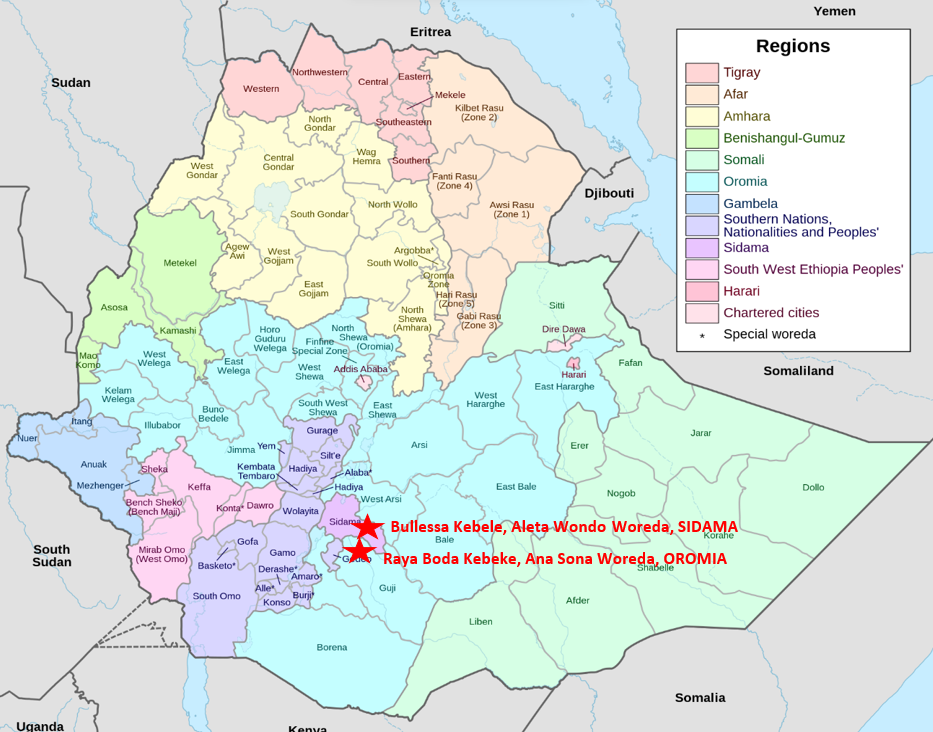 Intervention Areas of PREMAP II
Intervention Areas of PREMAP II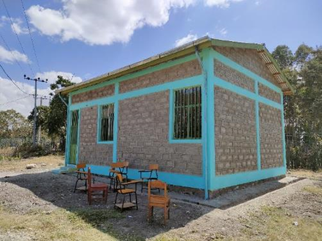
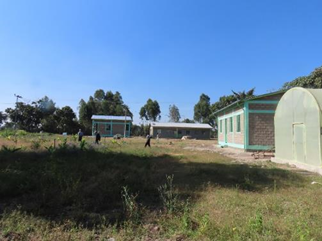 Strengthening the Farmers Training Center (FTC) (PREMAP I)
Strengthening the Farmers Training Center (FTC) (PREMAP I)Nigeria
Project title:Project for revitalization of rice cooperatives and decarbonization of rice production and processing (Climate Solutions Technologies Initiative)
Fund amount:739,414 USD
Project period: 31 March 2023 – 30 March 2024
Intervention Site: ① Dacewa MPCS Farmers Association (Dacewa MPCS), and ② Apashi- Woza Rice Farmers Cooperative
Overview: The project will strengthen the functions of the two rice cooperatives through the development of infrastructure, such as storage for communal collection and training. In addition, it also aims to promote digitalization through mobile app and decarbonize the rice production and processing process together with fertilizer-saving technologies. It promotes cooperative marketing functions, traceability, and efficient inventory management using mobile applications developed by a Japanese private company, Nippon Biodiesel Fuel co., Ltd. Moreover, in partnership with Tromso Co., Ltd., the project introduces rice husk briquets called Momigalite, which can be a replacement (carbon neutralization) of wood charcoal materials that are currently consumed in large quantities during the parboiling process of rice.
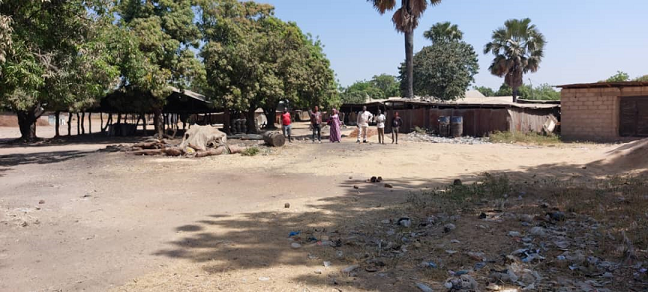 A planned site to build aggrigation center in Assakio Village, Assakio District, Lafia District
A planned site to build aggrigation center in Assakio Village, Assakio District, Lafia DistrictUganda
Project title:Project for Revitalization and Digitalization of Multipurpose Agricultural Cooperatives (OSCA) in Uganda
Fund amount:705,474.00 USD
Project period: 31 March 2023 – 30 March 2024
Intervention Site: Omuge sub county, Bala County, Kole district, Lango Region / Apetolim sub county, Lokopo County, Napak District, Karamoja Region
Overview: This project will strengthen the functions of two One Stop Center Association (OSCA) and promote market-oriented agriculture in the two northeastern districts of Uganda (Koré and Napak). Koré District is blessed with abundant rainfall and fertile soil, and is the center of maize production in Uganda, located on the export route to neighboring countries. On the other hand, Napak District, located in Karamoja Region, still has lower grain productivity than Kore District, but has high potential for dry-season vegetable production through small-scale irrigation.
In both target areas, the project aims to improve sustainable livelihoods of small-scale farmers by (1) improving profitability of grain farmers through joint collection and shipment and joint use of crop processing machinery, (2) introducing dry-season vegetable cultivation by strengthening technology extension functions in exhibition plots, and (3) promoting market-oriented agriculture through SHEP training and mobile applications.
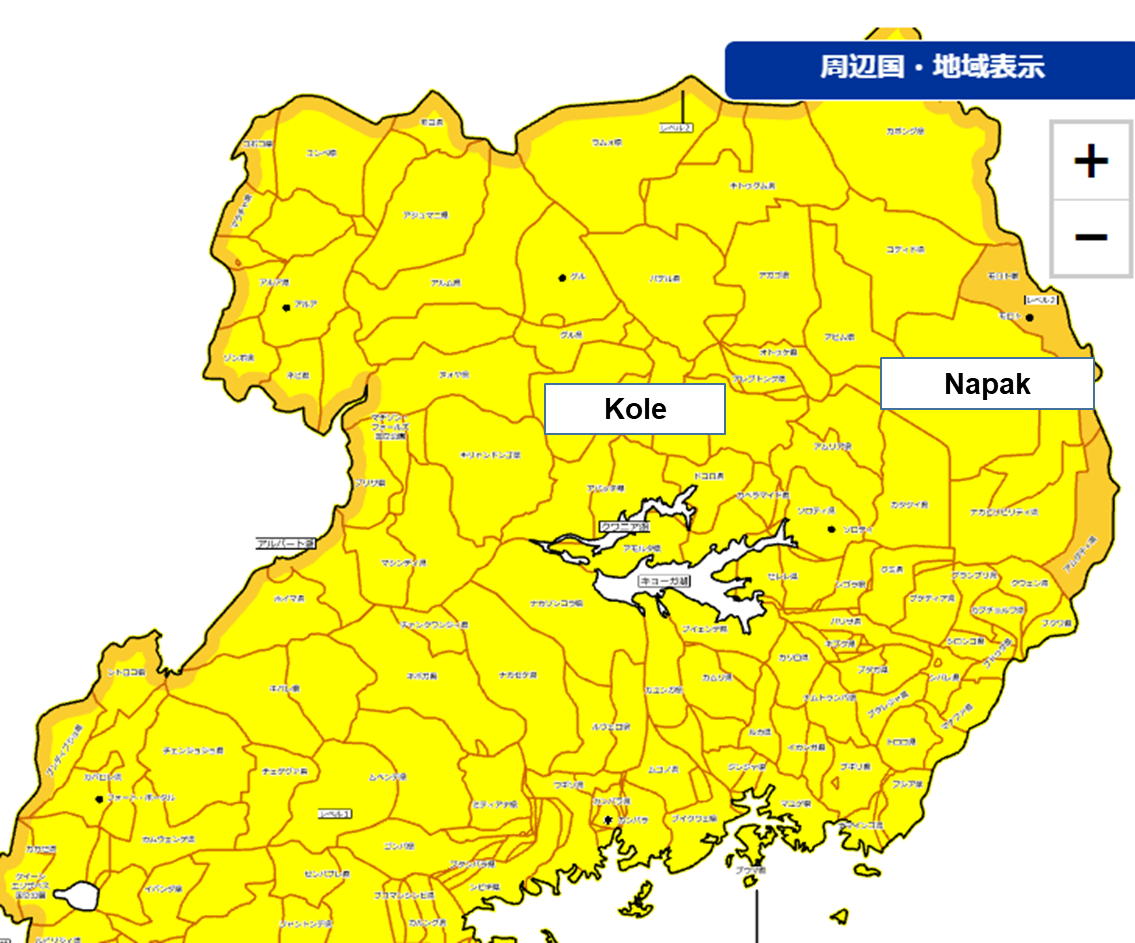 Project site map in Uganda
Project site map in Uganda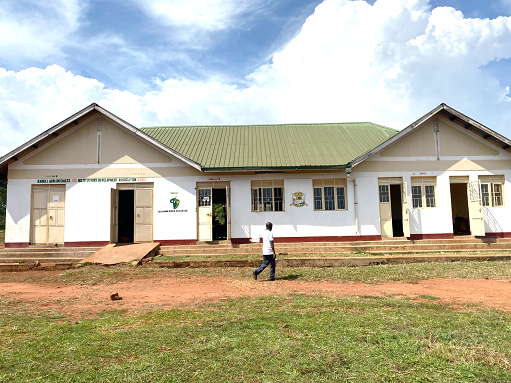 One Stop Center Association: OSCA
One Stop Center Association: OSCAMali
Project title:Project for Livelihood and Nutrition Improvement through Strengthening Agri-Cooperative in Mali (LINSAC)
Fund amount:72,827,746 JPY
Project period: 31 March 2023 – 30 March 2024
Intervention Site: Mande Commune, Kati Circle, Koulikoro Region
Overview:LINSAC project aims to improve the household income and the nutrition status of the smallholder farmers and the community in Samanko PHTC (Production and Post-Harvest Trading/Training Center), a cooperative union located in the suburbs of Bamako, Mali, by 1) strengthening PHTC’s collective marketing function, 2) promoting market-oriented agriculture of horticultural crops, and 3) supporting nutrition-focused activities in post-harvest value chain. Specifically, infrastructure development of the PHTC as a collective marketing and technology dissemination center (construction of a grain storage warehouse and training room); production and processing of horticultural crops based on environmentally friendly farming methods in the 10 villages that make up the PHTC (installation of simple irrigation facilities and composting pits for dry-season vegetable production, and provision of equipment and materials for agricultural storage and food processing); marketing promotion through a market-oriented agriculture (SHEP) approach, and the introduction of nutritionally friendly cooking methods and processing and marketing of nutritional supplements.
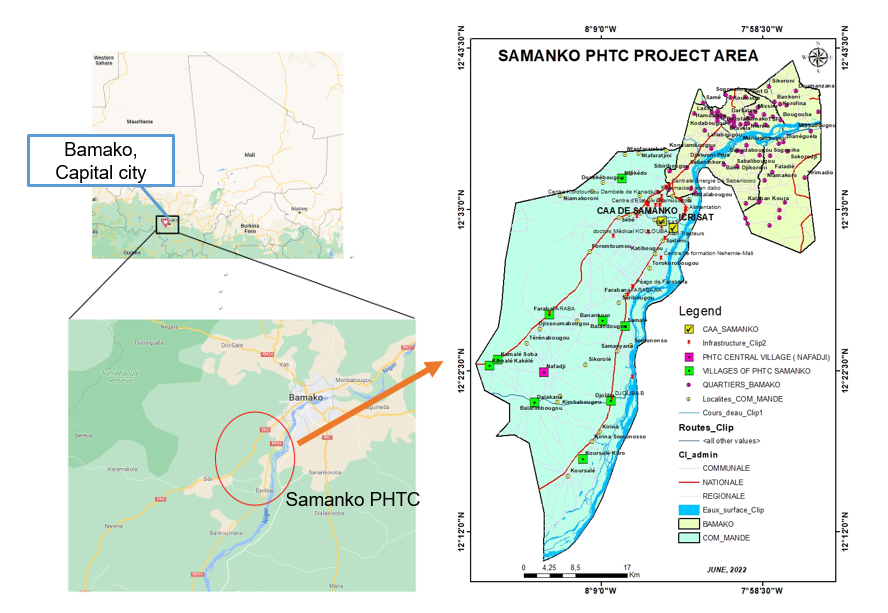 Project site map in Mali
Project site map in Mali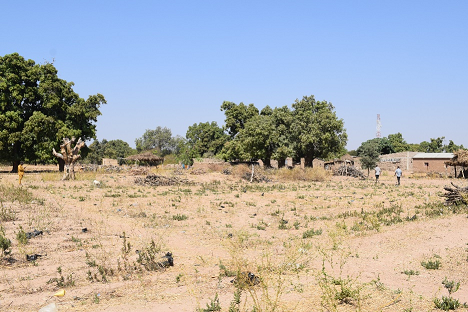 Planned site to build a training center (Samanko PHTC, Nafadji village)
Planned site to build a training center (Samanko PHTC, Nafadji village)(*1) Momigalite
The “Momigalite” is a rice husk solid fuel produced from a grind mill (a device that grinds rice husks and then compresses and heats them to produce solid fuel in the form of sticks), which has been adopted by the Ministry of Foreign Affairs as a decarbonization product under the Climate Solutions Technologies Initiative (*2).
(*2) Climate Solutions Technologies Initiative
The "Climate Solutions Technologies Initiative" is an initiative for Japanese companies and Japanese NGOs to cooperate in expanding advanced decarbonization technologies of Japanese companies to the Global South countries, utilizing the Japanese government's ODA scheme. (https://www.mofa.go.jp/mofaj/files/100192078.pdf)
SAA Publications
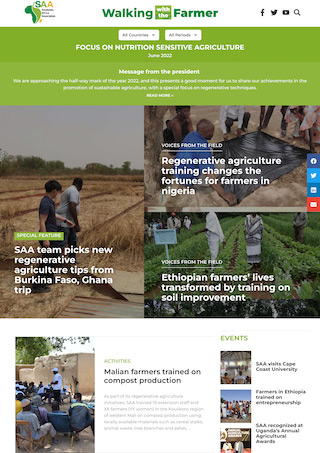
E-newsletter
"Walking with the Farmer"
SAA publishes a bimonthly e-newsletter reporting on SAA activities.
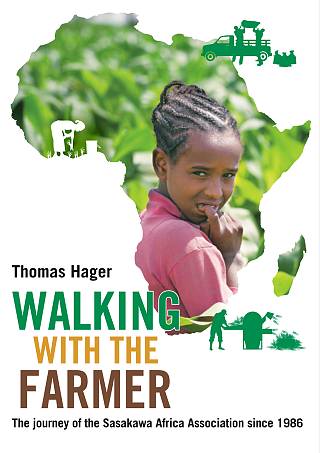
SAA history book
"Walking with the Farmer: The journey of the Sasakawa Africa Assoication since 1986"
This book chronicles the history of SAA from its inception to the present.
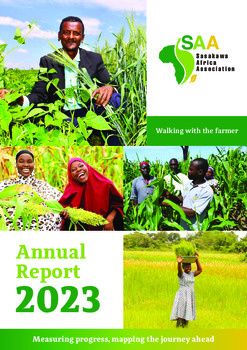
Annual Report
Annual Report FY2023
Annual Report FY2023 is available here.




